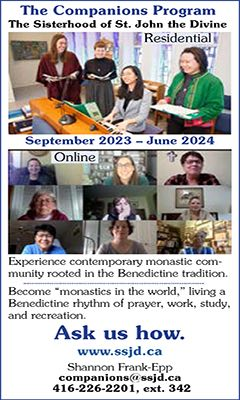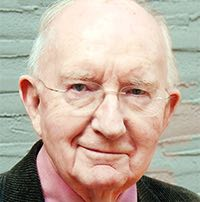Donaguile, Castlecomer, 1940
In the 1920s, the world of Irish farming was simple and modest. Some large estates were exceptions, but they were diminishing in number as the decade went by. Otherwise, very few farms had machinery. Seeding the fields and reaping the crops was still largely done by family. If asked, neighbours would come to help, just as my family would help them during these seasons. However, in the years after the First World War, many farmers began to purchase a mowing machine, among them my grandfather.
When we arrived in Donaguile for the long summer holiday in August 1940, my uncle told me that he and my grandfather and the hired man, John, hoped to cut the corn on the hill field near the farmhouse. I was twelve years old.
I am up with the sun to watch the preparations. Two horses are needed to pull the mower. They stand on either side of a long single wooden shaft to which my grandfather yokes them. Behind them is the mowing machine itself, very simply designed. Above two metal wheels and an axle is the seat for the driver. Beside it there is a slightly smaller metal seat for the reaper. On this particular day, my uncle will drive the horses and my grandfather will take a large wooden rake and climb onto the side seat. Beside him at ground level are the long, shining, well-oiled knives that will cut the corn, shuttling back and forth with a loud, harsh clattering. Behind the knives is a wooden rack into which the falling corn will tumble, swept back by my grandfather’s rake.
This morning I follow behind the mower with my aunt and the hired man, John. Their task is to take each armful of corn, tie it with binder twine and leave it lying for others who will follow to build the bundles into “stooks.” Standing in stooks, the corn will then be ready to dry in the fervently hoped for summer sunlight.
There is a break for lunch. At some point during the meal, my uncle turns to my mother and says, pointing at me, “I think this young man could drive the horses this afternoon.” I can’t believe my ears. At first my excitement is full of fear, then it gradually simmers down to an excited anticipation.
The day continues to be fine as we return to the field. John has completed watering the horses. My grandad takes his place beside me with his rake. He shows me how to hold the long reins and emphasizes how important it is that I keep the horses walking in a straight line along the edge of the standing corn. As we set out on the first round of the field he keeps a close eye on me. Once or twice he signals to me to straighten up. At one point he grabs the reins from my right-hand and pulls them strongly to bring the right hand horse nearer to the corn.
By the third round of the field, I am confident enough to take my eyes off the horses now and then and to look about me. I notice a pattern in my grandad’s directions. Each time we come to a corner of the field, he signals me to begin turning the horses before we get to the end of the field. This happens at all four corners. The result is that at each corner of the field, we leave a triangle of uncut corn. When I ask why we are doing this, I receive the simple reply “Because it’s in the Bible.”
In the year of our Lord 1940, you did not say to your grandfather, “What do you mean, it’s in the Bible?” You acknowledged the explanation and concentrated on driving the horses!
I intended to investigate further, but my uncle said to me that I had done a great job and I could perhaps do a bit of driving in another cornfield on the morrow. This so filled me with excitement that all else faded from my mind. A few days later I did ask my parents. Neither of them could enlighten me. Summer went by. We returned to the city.
It is 1990. Half a century has slipped away. I am in a window seat of an Air Canada flight from Toronto to Calgary and home. I look down to see a golden ocean of Saskatchewan corn far below. Suddenly, long ago horses are pulling on my tightly held reins, and I hear my granddad say, “It’s in the Bible.” I can hardly wait to get home to consult my Cruden’s Concordance of the Bible. Hastily, I turn the pages to the list of Biblical references for the word “reap,” tracing my finger down the miniscule print of the many references. Suddenly, there it is!
“When you reap the harvest of your land, you shall not reap to the very edges of your field or gather the gleanings of your harvest. You shall leave them for the poor, and for the alien.”
Today we have much official language for such things. We write of Ethical Farming Policy, Responsible Agriculture, International Cooperatives. My grandfather was a ten-year-old boy in school when he learned that verse from Leviticus. It would have been 1871.



